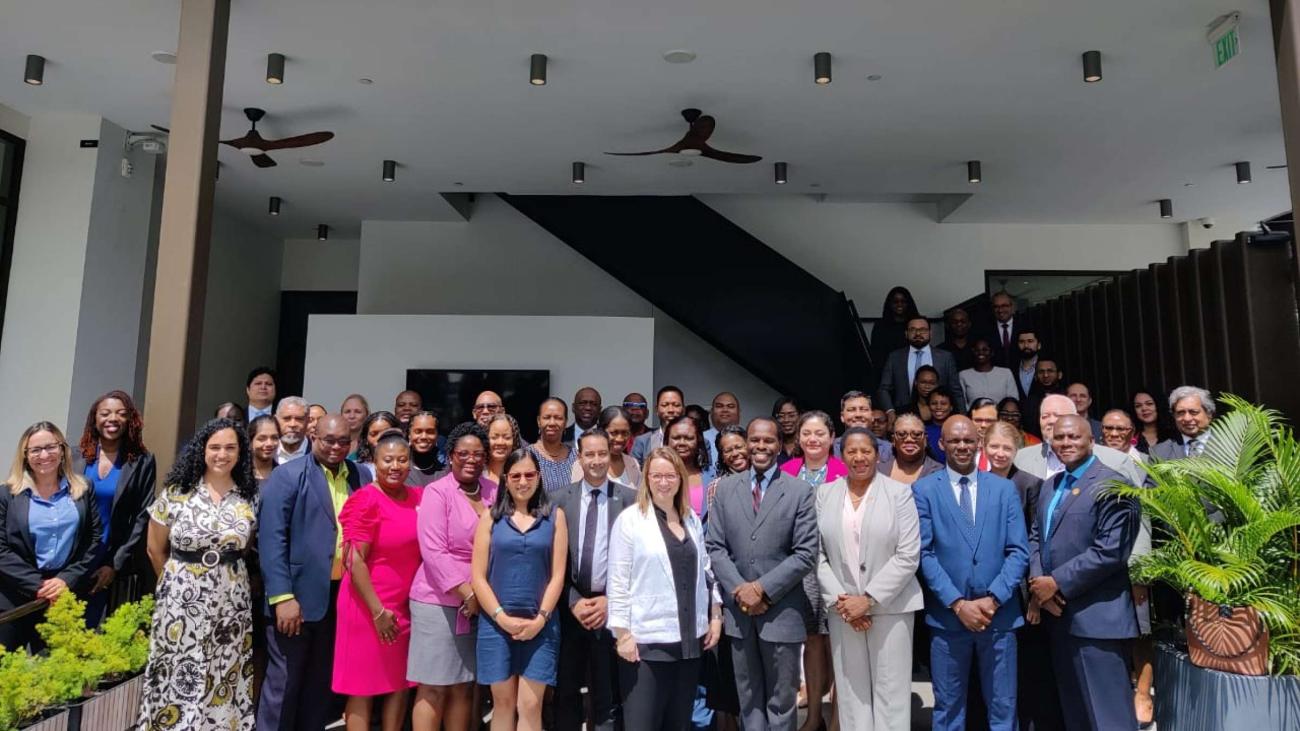Caribbean meets to accelerate climate action

Source(s): United Nations Office for Disaster Risk Reduction – Regional Office for the Americas and the CaribbeanUNDRR Bonn Office
The first Caribbean Regional workshop on Integrated Disaster Risk Reduction and Climate Change Adaptation commenced yesterday in Port of Spain, Trinidad. This two-day regional workshop involves the participation of government ministries responsible for disaster risk reduction and climate change adaptation across CDEMA Member States.
The workshop aims to enhance the understanding of the nexus between disaster risk reduction and climate change adaptation, further develop the capacities of Caribbean countries in pursuing integrated approaches for comprehensive risk management, and to support regional efforts in streamlining climate change adaptation and disaster risk reduction measures in light of past and projected climate change impacts.
Supported by the United Nations Office for Disaster Risk Reduction (UNDRR), in collaboration with the secretariat of the United Nations Framework Convention on Climate Change (UNFCCC), the workshop is being co-organized by the Caribbean Disaster Emergency Management Agency (CDEMA) and the Caribbean Community Climate Change Centre (CCCCC), and hosted by the government of Trinidad and Tobago.
The workshop was jointly opened by the Ministry of Planning and Development, responsible for addressing climate change, and the Ministry of National Security, responsible for disaster risk reduction, in Trinidad and Tobago.
The Honourable Pennelope Beckles-Robinson, Minister of Planning and Development, emphasized the fact that climate change is not a distant threat: “Not ahead of us, it is upon us!’. She highlighted the importance of developing systems that go well beyond the political cycle and rather adopt all all-of-society approach – across all levels, across ministries, and civil society, etc. To promote this, she highlighted that the alignment of regional and national strategies is vital not only for collective wellbeing but also the overall success of the 2030 Agenda for Sustainable Development.
The Honourable Fitzgerald Hinds, Minister of National Security, Trinidad and Tobago stressed that we can safeguard communities and ecosystems using a comprehensive risk management approach. “Coherence is not a choice but an imperative. We will determine the fate of future generations. Let us rise to the challenge and build a future where disaster risk is minimized and economies and can thrive as our planet dances sweetly to calypso or reggae,” for Caribbean to be among the best and safest places to be.
Joanna Kazana, the United Nations Resident Coordinator for Trinidad and Tobago emphasized the importance of an effective national plan to promote disaster risk reduction and climate change adaptation efforts. She outlined the UN’s continued support and commitment for such developmental efforts.
The workshop was organized a week after UN Secretary-General António Guterres’ visit to Trinidad and Tobago where he called for accelerating climate action at the 45th regular meeting of the Conference of the Heads of Government of the Caribbean Community (CARICOM). As most small island developing States, the Caribbean island countries have been facing increasingly intensifying impact of the climate emergency, including early onset of hurricanes this year which is unprecedented.
Colonel Kester Craig, Deputy Executive Director of CDEMA, Mr. Keith Nichols, Head of Programme Development and Management Unit of CCCCC, and Mr Animesh Kumar, Head of UNDRR’s Bonn Office provided welcome remarks at the workshop opening.
The workshop is aligned with the work plan of the Technical Expert Group on Comprehensive Risk Management (TEG-CRM), part of the Executive Committee of the Warsaw International Mechanism for Loss and Damage (ExCom). Ms Camila M. Rodriguez from Dominican Republic and Ms Angela Patricia Rivera Galvis from Colombia are representing the ExCom and the TEG-CRM at the workshop.
The workshop will review the policy landscape and risk status in the island countries in the region, and develop a roadmap to define and pursue integrated approaches in the region.

